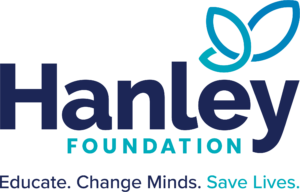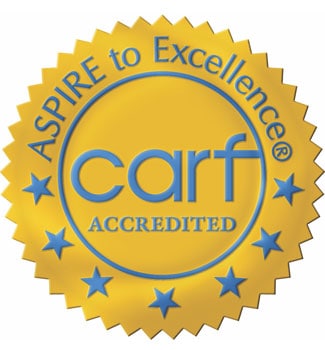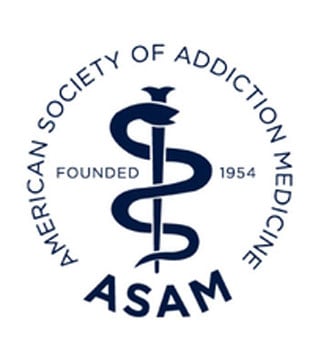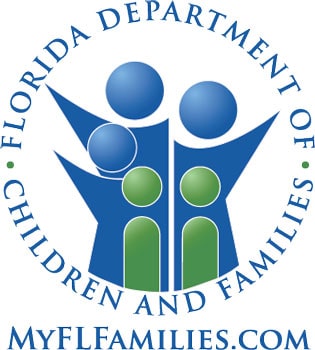Trauma Therapies

For many people, drug or alcohol use can be a symptom of other mental health concerns, such as trauma. When a patient seeks treatment for substance use but does not receive holistic care that also addresses mental health concerns, problems arise. If underlying mental health disorders go untreated, relapse may occur, and addiction can persist, despite repeated attempts at rehabilitation.
We help our patients overcome any barriers to lifelong recovery and wellness that they may face. As experienced clinicians, we know that deeply rooted traumatic experiences are common among women and men who are struggling to recover. Our staff is highly trained to provide specialized services for patients who have experienced PTSD or trauma.
At Hanley Center’s designated Residential Mental Health Program, you’ll have the opportunity to examine all dimensions of your psychological, biological, social, and spiritual wellness. Doing so will help us help you fully address your unique challenges, issues, and strengths. Our program’s holistic and coordinated approach treats you with compassion. Our professionals take the time to evaluate your mental health needs regarding trauma and affirm or update your diagnosis to create a personalized treatment plan for your total recovery. Our licensed mental health counselor utilizes various evidence-based protocols to treat trauma, including Eye Movement Desensitization and Reprocessing (EMDR) and other trauma-informed interventions.
Each member of Hanley’s team — from clinical and medical to support and executive staff — are trained and educated about trauma and the importance of creating a trauma-informed treatment environment.
TREATMENT MODALITIES
Trauma and Post-Traumatic Stress Disorder (PTSD)
Trauma means something different to each person who experiences it. Relationship problems, socialization issues, anxiety, fear responses, and more can arise as a result of witnessing or experiencing abuse, violence, disaster, the loss of a loved one, extreme stress or burnout, and physical injury or illness.
Post-traumatic stress disorder, often known as PTSD, is the most commonly known manifestation of trauma. Frequently associated with military veterans, PTSD can affect women, men, and children who have been through traumatic events as well. Physical or sexual abuse, severe accidents and injuries, natural disasters or tragedies, and childhood neglect are all possible events one may have that can lead to PTSD.
PTSD symptoms can interfere with an individual’s ability to live a happy, healthy life. Symptoms can include:
- Depression or anxiety
- Withdrawal from others
- Unwarranted anger or emotional outbursts
- Inability to function in daily life
- Dissociative mental experiences or flashbacks
- Insomnia
- Panic or overreaction to events
- Involuntary thoughts about a traumatic event
- Inability to concentrate
Symptoms of PTSD tend to emerge slowly, and many people do not receive the much-needed treatment right away. PTSD can be dangerous, frustrating, and debilitating for the individual or those around them — undiagnosed PTSD can make life unbearable. But there is hope. We offer exceptional clinical care for addicted sufferers of trauma and PTSD.
Treatment Modalities for PTSD
Trauma and stress-related disorders and PTSD require specialized therapies directed at addressing trauma. Interventions include therapies that help the individual reprocess the memories and reactions associated with the experience, and help them develop healthier coping mechanisms. At Hanley Center, our goal is to give our patients the skills they need so that they do not need to rely on substances to feel comfortable in their own skin.
Each patient’s multidisciplinary treatment team collaborates with our Center for Brain Recovery (CBR) specialists to review the patient’s progress and identify any other psychological issues that may emerge while in treatment, including PTSD or other mental health concerns. Our licensed therapists and master’s level clinicians offer customized treatment plans that include trauma-related exercises and topics. Treatment at Hanley depends on each person’s unique case and may consist of evidence-based interventions such:
- Eye Movement Desensitization and Reprocessing (EMDR)
- Cognitive-behavioral therapy (CBT)
- Neurofeedback
- Biofeedback
- Group process or individual therapy
- Meditation and mindfulness training
These therapies anticipate trauma triggers, de-escalate fear and measure anxiety responses, manage anger or mood swings, and process traumatic memories, all of which are proven effective for symptoms of PTSD.
At Hanley Center, our goal is to give our patients the skills they need so that they do not need to rely on substances to feel comfortable in their own skin.
Our Center for Brain Recovery
Hanley Center is committed to helping our patients overcome addiction for good. We provide top-quality psychological services to treat women and men who struggle with co-occurring mental health disorders and are fully equipped to treat stress-related disorders and trauma, including PTSD.
Our multidisciplinary team of healthcare professionals has specialty experience in trauma-informed treatment and treatment for a variety of other mental health concerns such as anxiety, depression, and personality disorders. Our CBR team forms a core component of every patient’s treatment plan. This collaborative approach allows our providers to find lasting solutions for the variety of challenges in a person’s neurological and psychological development.
Gender-Specific Treatment
Hanley Center has a long history of advocating for gender-specific treatment of co-occurring disorders and addiction, and we have remained on the leading edge of research and modalities. The patient’s background always informs our treatment for PTSD, trauma, and other similar disorders, and this includes their experiences as a woman or a man.
Women who are dealing with substance misuse issues have a 70% or higher rate of experiencing PTSD, frequently as a result of domestic or sexual abuse. Statistically, women are significantly more likely to have been the victims of neglect, abuse, or trauma than their male counterparts. Hanley Center provides women’s gender-specific residential treatment for women who have experienced trauma and seek refuge in addition to recovery.
On the other side of the coin, PTSD in men is frequently associated with violence or military experience. Studies suggest substance use is more common in male veterans than their female counterparts. It is essential to understand that men express and process trauma differently than women do. Men often grow up expected to be “strong” and resilient and may be less willing to open up and admit to their trauma-related difficulties. Our gender-specific men’s programming includes engaging and approachable therapies to help our patients discover trust and emotional openness in a judgment-free environment.

Contact Hanley Center
We are dedicated to helping our patients achieve lifelong, sustainable, and complete recovery. We know that sobriety is possible for everyone, especially through evidence-based treatment modalities that restore mental, physical, and spiritual health. Our Center for Brain Recovery provides effective, cutting-edge care that enacts real, lasting change for our patients.
Today is the day you break the cycle of addiction.
Hanley Center: Most Insurance Accepted
Information entered on this form will not be used to initiate SMS.
Address: 933 45th Street
West Palm Beach, FL 33407




